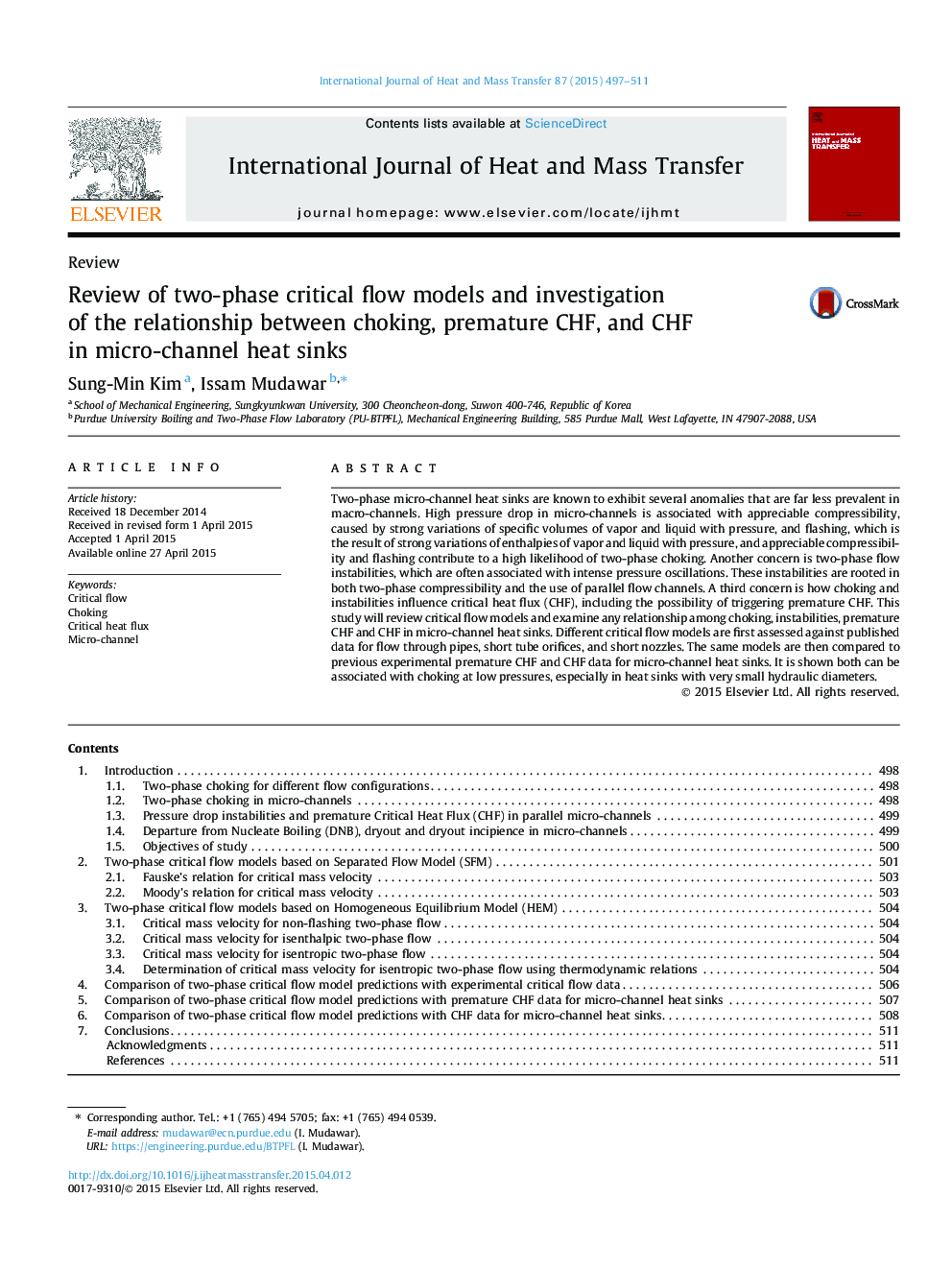| Article ID | Journal | Published Year | Pages | File Type |
|---|---|---|---|---|
| 657091 | International Journal of Heat and Mass Transfer | 2015 | 15 Pages |
Two-phase micro-channel heat sinks are known to exhibit several anomalies that are far less prevalent in macro-channels. High pressure drop in micro-channels is associated with appreciable compressibility, caused by strong variations of specific volumes of vapor and liquid with pressure, and flashing, which is the result of strong variations of enthalpies of vapor and liquid with pressure, and appreciable compressibility and flashing contribute to a high likelihood of two-phase choking. Another concern is two-phase flow instabilities, which are often associated with intense pressure oscillations. These instabilities are rooted in both two-phase compressibility and the use of parallel flow channels. A third concern is how choking and instabilities influence critical heat flux (CHF), including the possibility of triggering premature CHF. This study will review critical flow models and examine any relationship among choking, instabilities, premature CHF and CHF in micro-channel heat sinks. Different critical flow models are first assessed against published data for flow through pipes, short tube orifices, and short nozzles. The same models are then compared to previous experimental premature CHF and CHF data for micro-channel heat sinks. It is shown both can be associated with choking at low pressures, especially in heat sinks with very small hydraulic diameters.
